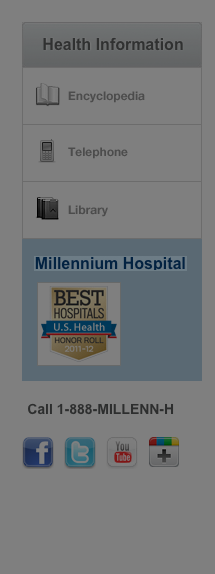Bland diet
 Print-Friendly
Print-Friendly
A bland diet can be used alongside lifestyle changes to help address the symptoms of ulcers, heartburn, GERD, nausea, and vomiting. You may also need a bland diet after stomach or intestinal surgery.
I Would Like to Learn About:
Self-care
A bland diet includes foods that are soft, not spicy, and low in fiber. If you are on a bland diet, you should not eat spicy, fried, or raw foods. You should not drink alcohol or drinks with caffeine in them.
Your health care provider will tell you when you can start eating other foods again. It is still important to eat healthy foods when you add foods back in. Your provider can refer you to a dietitian or nutritionist to help you plan a healthy diet.
Foods you can eat
Foods you can eat on a bland diet include:
- Milk and other dairy products, low-fat or fat-free only
- Cooked, canned, or frozen vegetables
- Potatoes
- Canned fruit as well as apple sauce, bananas, and melons
- Fruit juices and vegetable juices (some people, such as those with GERD, may want to avoid citrus and tomato)
- Breads, crackers, and pasta made with refined white flour
- Refined, hot cereals, such as Cream of Wheat (farina cereal)
- Lean, tender meats, such as poultry, whitefish, and shellfish that are steamed, baked, or grilled with no added fat
- Creamy peanut butter
- Pudding and custard
- Graham crackers and vanilla wafers
- Popsicles and gelatin
- Eggs
- Tofu
- Soup, especially broth
- Weak tea
Foods to Avoid
Some foods you may want to avoid when you are on a bland diet are:
- Fatty dairy foods, such as whipped cream or high-fat ice cream
- Strong cheeses, such as bleu or Roquefort cheese
- Raw vegetables and salads
- Vegetables that may make you gassy, such as broccoli, cabbage, cauliflower
- Dried fruits
- Whole-grain or bran cereals
- Whole-grain breads, crackers, or pasta
- Pickles, sauerkraut, and other fermented foods
- Spices and strong seasonings, such as hot pepper and garlic
- Foods with a lot of sugar in them
- Seeds and nuts
- Highly seasoned, cured or smoked meats and fish
- Tough, fibrous meats
- Fried or greasy foods
- Alcoholic beverages and drinks with caffeine in them
You should also avoid medicine that contains aspirin, ibuprofen (Advil, Motrin), or naproxen (Aleve, Naprosyn).
Other Diet Tips
When you are on a bland diet:
- Eat small meals and eat more often during the day.
- Chew your food slowly and thoroughly.
- Stop smoking cigarettes, if you smoke.
- Do not eat within 2 hours of your bedtime.
- Do not eat foods that are on the "foods to avoid" list, especially if you do not feel well after eating them.
- Drink fluids slowly.
Related Information
References
Moldwin RM, Hanno PM. Interstitial cystitis/bladder pain syndrome and related disorders. In: Partin AW, Dmochowski RR, Kavoussi LR, Peters CA, eds. Campbell-Walsh-Wein Urology. 12th ed. Philadelphia, PA: Elsevier; 2021:chap 57.
Pruitt CM. Nausea, vomiting, diarrhea, and dehydration. In: Olympia RP, O'Neill RM, Silvis ML, eds. Urgent Care Medicine Secrets. Philadelphia, PA: Elsevier; 2018:chap 20.
Thompson M, Noel MB. Nutrition and family medicine. In: Rakel RE, Rakel DP, eds. Textbook of Family Medicine. 9th ed. Philadelphia, PA: Elsevier; 2016:chap 37.
